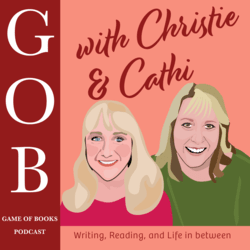Querying a book is a study in patience and fortitude … like balancing on one foot for hours or catching cats. Every author has a different story about how they got published but there is one truth that they all seem to agree on – publishing is not a quick process. The first part of the slow road is querying an agent. For every author that says I got an agent in a week (I try not to hate them too much) there are hundreds of others that say it took forever and that they were on their second or third agent by the time they got published.
Of course, I didn’t know this when I first finished my book, and this led to my first mistake. It is one that seems common enough to possibly be a rite of passage on the way to publishing. Here it is … I announced to everyone within earshot that I had finished my book. I can hear you saying, “Why shouldn’t you? You should be proud of yourself!” First, I agree and am extremely proud that I was able to put words to an entire novel! Just like any artistic endeavor where the creating process is demanding and sometimes never makes it to completion, the celebration should be in the work. Here’s the problem … it’s not good enough to just say you finished it, your family and friends want to see the final product. If you are planning on self-publishing or this is the one and only book you care to write, then by all means shout it from the roof top! But for those who are planning on trying to traditional publish, I’m warning you. Your well-meaning friend will begin to sound like the are-we-there-yet kid in the back seat of a long road trip, “When can I see your book?” over and over.
I feel this constant reminder of the long journey until the book is in hand might be unavoidable for the first book … I’m not sure I could have contained the celebration on completion of the manuscript … but I will do things a little differently for future books. Some of you may still be writing and will have the fortitude to silently jump for joy with only letting a beta reader or two know that you are done with the first draft. If so, kudos to you! Because the querying process is a long one. True story (I saw it on twitter, so you know it has to be true), a year after sending out a query a writer received a rejection letter even though her book (with the same title) was already a new best-seller! Agents are well-informed, savvy readers but they are still subject to their own preferences. No one knows the secret recipe for a guaranteed best-seller and if anyone sells you that then beware. It’s the readers who make it a best-seller and timing and luck and … well, the variables are endless. Therefore, my suggestion (if you have the fortitude) is to wait until you have a contract to announce your success to the world, so you can avoid Aunt Maeve turning into the old lady from the Wendy’s commercial and asking again and again, “Where’s the book?”











